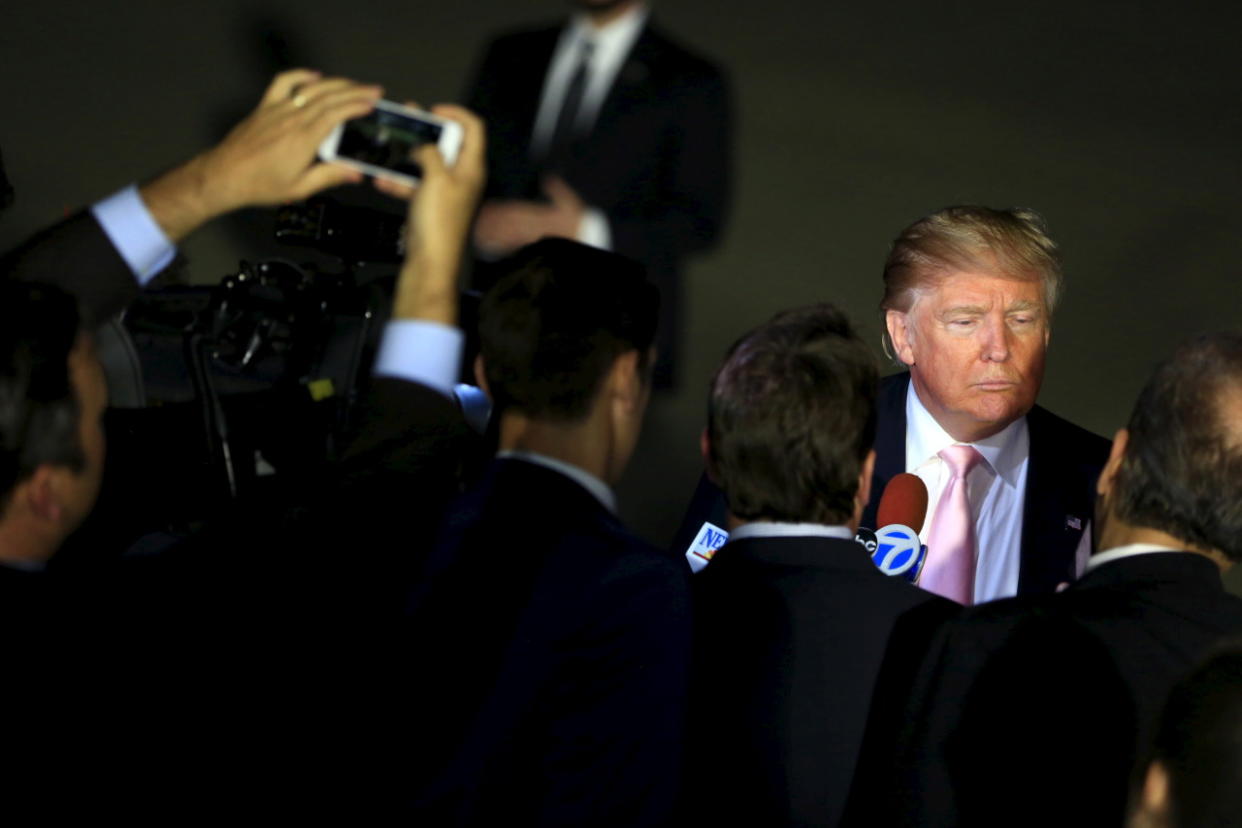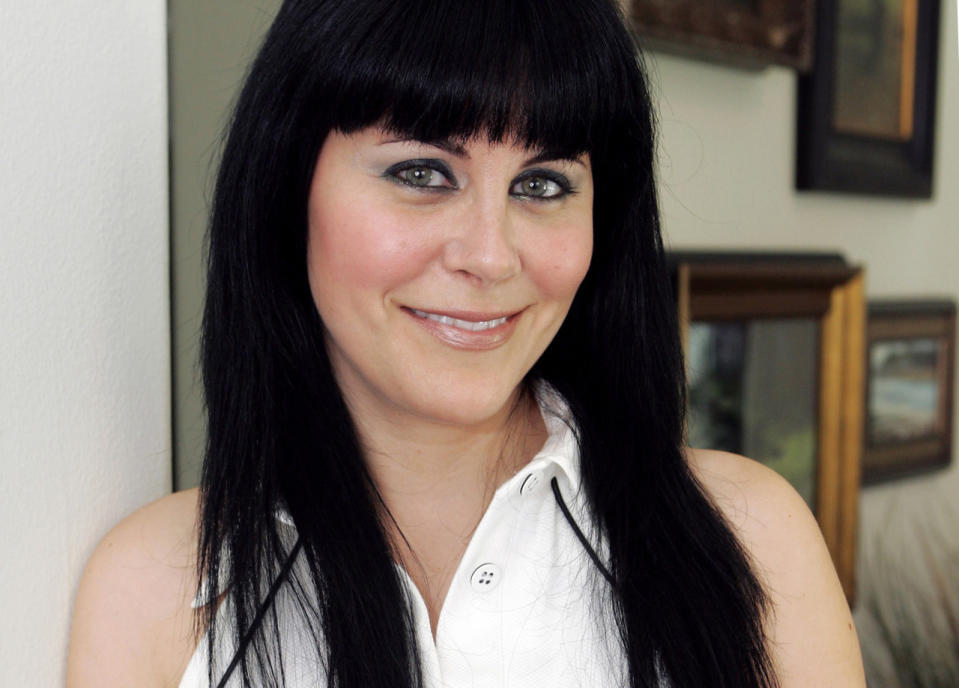Lawyers in Trump U. fraud suit push for June trial

Republican presidential candidate Donald Trump speaks with the media in Youngstown, Ohio, on March 14. (Photo: Aaron P. Bernstein/Reuters)
The lawyers suing Donald Trump for fraud over Trump University are now pushing for a trial in the case to start as early as June — a time which, if granted, could complicate the Republican frontrunner’s plans on the eve of the July GOP convention.
In court papers filed this week with U.S. District Judge Gonzalo Curiel in San Diego, a lead lawyer in a pending class-action suit against Trump University argued that “time is of the essence in getting this case to trial.”
The plaintiff’s lawyer, Rachel Jensen, also cited newly unsealed excerpts from a deposition Trump gave last December. In one contentious exchange, the billionaire businessman testified: “Let’s just go to court and get this case — I’m dying to go to court in this case.”
At an upcoming trial conference, Jensen wrote, “Plaintiffs respectfully request that the Court set a date certain for trial — either in June or August, and either a jury or bench trial, at defendant’s election,” according to a brief filed with Curiel.

Trump speaks as course materials are displayed during a news conference announcing the establishment of Trump University in 2005. (Photo: Mario Tama/Getty Images)
The judge has yet to rule on the request, although he has scheduled a final pretrial conference in the long-pending lawsuit for May 6. But at a pretrial conference last week, Trump’s lead lawyer, Daniel Petrocelli, argued that his client’s presidential run has complicated things; earlier, the parties had discussed beginning the trial in August. “I’m going to have a lot to say on this topic if he is the nominee,” Petrocelli said, later adding: “This would be a zoo if it goes to trial.”
The upcoming trial over Trump University has loomed increasingly large in Trump’s presidential bid, given that he is both the lead defendant in the case and a scheduled witness. The plaintiffs are suing Trump for deceptive trade practices and other fraudulent acts, contending that he deceived them and thousands of others into paying as much as $35,000 for his courses and “mentoring” by the mogul’s “hand-picked” real estate experts, who would teach them how to “make a killing” in the real estate market.
In fact, according to recently released excerpts from Trump’s deposition, he was unable to recognize the names (or photographs) of any nstructors at the school, and acknowledged he played no direct role in selecting them. And, some of the plaintiffs argue, the courses were largely worthless, and left them with large debts.
Trump has vigorously contested these allegations, both in court through his lawyers and more recently on the campaign trial, contending that 98 percent of students who attended the courses filled out evaluation forms giving them positive ratings.

Tarla Makaeff in 2008. Makaeff is the lead plaintiff in a fraud claim lawsuit against Trump University. (Photo: Nick Koon/Orange County Register via AP)
But Trump also recently suggested that he may seek to have Curiel recused from the case, asserting that he is biased against him because Curiel is Hispanic and therefore presumably objects to Trump’s plan to build a wall on the Mexican border. (Curiel last year rejected a motion by Trump’s lawyers to dismiss the case on summary judgment.)
One issue that came up during last week’s conference was a dispute about whether lead plaintiff Tarla Makaeff, a California yoga instructor, should be permitted to withdraw on the grounds of ill health. (She has also asserted that she fears retaliation by Trump.) Petrocelli argued that this would put is legal team at a disadvantage because it planned to make Makaeff’s credibility an important part of their defense. (The judge has yet to rule on Makaeff’s request; her lawyers offered to submit her medical records for inspection, and say other plaintiffs will sit in her place.)
But another, even more difficult issue may be finding a jury to sit in judgment of Trump. “At [last week’s] hearing, defense counsel suggested that it may be unrealistic to try this case to a jury right now, given the intense media scrutiny it has attracted,” Jensen wrote in her motion. One suggestion made by Curiel at the conference is that the case be tried instead as a bench trial by the judge — an idea Jensen said the plaintiffs were willing to accept.


